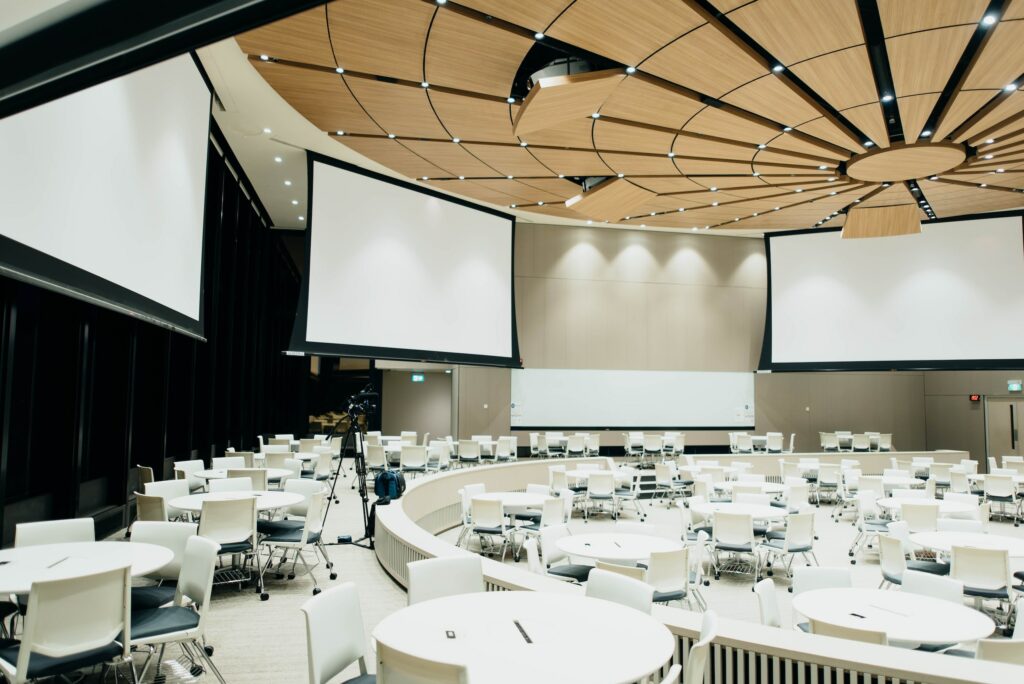Step 1: Don’t Panic. Step 2: Follow this road map.
Congratulations on being tasked with planning the next meeting! This is a great opportunity to showcase your organizational skills and creativity. Here are some steps you can follow to ensure that the meeting is a success:
Pre-Meeting Planning
The success of a meeting often hinges on what happens before the actual gathering. Pre-meeting planning sets the foundation for a productive discussion. Here are some essential tasks to complete before the meeting:
Set Clear Goals: Define the purpose and objectives of the meeting. What outcomes do you want to achieve? A well-defined goal will guide the meeting’s agenda and keep participants focused.
Identify Attendees: Involve only those individuals directly relevant to the meeting’s objectives. Keep the attendee list concise to promote active participation and prevent unnecessary distractions.
Choose Date, Time, and Location: Coordinate schedules to find a time suitable for all key participants. If it’s an in-person meeting, ensure the location accommodates the group comfortably
Meeting Preparation
The success of a meeting is further enhanced by thorough preparation. Here are crucial tasks to complete before the meeting itself:
Create a Clear Agenda: Structure the meeting agenda to include the topics to be discussed, time allocations, and the order of presentation. Share the agenda in advance to allow attendees to come prepared.
Prepare Materials: Gather and organize all necessary materials, such as presentations, reports, and data. Distribute these materials to participants ahead of time for review.
Communicate with Attendees: Send out meeting invitations along with the agenda and any relevant materials. Confirm attendees’ availability and encourage them to contribute their insights.
Meeting Execution
Executing a meeting smoothly is the key to keeping everyone engaged and on track. Here are tasks to complete during the meeting:
Start on Time: Punctuality is a sign of respect for attendees’ time. Begin the meeting promptly and avoid wasting time waiting for latecomers.
Keep the Meeting Focused: Stick to the agenda and ensure discussions stay on topic. Assign a facilitator to guide the conversation and maintain order.
Engage Participants: Encourage active participation and create an inclusive environment. Listen to everyone’s input and acknowledge their contributions.
Post-Meeting Follow-Up
A successful meeting doesn’t end when participants leave the room or sign out of the virtual platform. Proper follow-up is essential to ensure that actions are taken and results are achieved. Here are post-meeting tasks to complete:
Send a Summary and Action Items: Provide a concise summary of the meeting’s key points and action items assigned to each participant. This reinforces accountability and clarity on next steps.
Gather Feedback: Request feedback from participants to identify areas for improvement and ensure future meetings are even more productive.
Schedule the Next Meeting: Set a date and time for the next meeting to maintain momentum and continuity.
Planning and conducting efficient meetings is a skill that drives business success and enhances teamwork. Using this checklist, you’ll empower yourself as a business or sales leader to lead impactful meetings that achieve results. Remember, preparation, organization, and engagement are the keys to successful meeting outcomes.
Any thoughts, opinions, or news? Please share them with me at vince@meetingsevents.com.
Photo by CHUTTERSNAP on Unsplash





